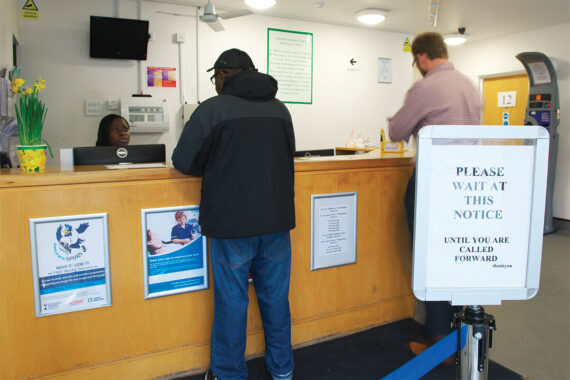NHS England has called on GPs to support the early release of prisoners under a new Government scheme.
The Ministry of Justice scheme is designed to help tackle prison capacity issues, and eligible prisoners will be released in England between 10 September and 22 October.
Yesterday, NHS England wrote to GP practices asking for their support with patient registration and assessment in order to ‘ensure the continuity of care’ for these individuals.
Practices will receive a ‘pre-registration notification’ from prison medical services, and should ‘ensure processes are in place to support pre-registration and the subsequent transfer of care’.
The letter stated that prison medical services will arrange the electronic transfer of records to the individual’s new GP practice.
NHS England highlighted that individuals released early from prison do not need a home address, proof of ID or an NHS number in order to register with a GP practice.
The letter also urged GPs to handle registration ‘sensitively’, emphasising that the ‘inability’ to present information ‘is not a reason to refuse registration’.
GPs should also ‘prioritise’ new patient assessments for early-release prisoners and to consider history such as ‘mental health, drug, alcohol and substance misuse needs’.
Prison medical services will provide a discharge summary as well as 28 days of medicines, or up to 14 days of opioid substitution therapy prescriptions.
Any individuals who were under the Special Allocation Scheme (SAS) for violent patients when they entered prison will return to it on their release, and remain there until discharge.
The letter, from NHSE national director of health and justice Kate Davies and group director of primary care delivery and support Alex Morton, said their ‘priority is to ensure continuity of care’.
It continued: ‘At a time of great uncertainty for many of these men and women, who are our patients both in prison and in the community, the ongoing provision of care and treatment is a crucial element in supporting their rehabilitation, reducing health inequalities and minimising the risk of reoffending.’
The Government announced its ambition to ‘tackle the prison capacity crisis’ in July, with plans to ‘temporarily reduce’ the proportion of certain custodial sentences served in prison from 50% to 40%.
This early-release scheme automatically excludes ‘serious violent offences of four years or more’, sex offences and crimes connected to domestic abuse.
Pulse October survey
Take our July 2025 survey to potentially win £1.000 worth of tokens













Ok, so just includes ‘semi-serious’ violent crimes like Attempted Murder will get much earlier release, perhaps: sounds like the Tories’ failures in policing, criminal justice and prisons are coming home to roost. Also, add this to NHS failures and failures to properly support GP practice and this could be a maelstrom for GPs and receptionists/practice managers in some areas: sadly, former inmates are not always redeemed. When this shoddy system breaks down at the front desk where will be the police?
I do not think GPs should prepare to register ‘early-release prisoners’.
GPs are already prepared to register patients, and should continue to do so, but I am concerned about the implication we should treat them different.
The other concern is the msinformation that prisoners can register with a GP using their HMP address and without a ‘home address’ within the Practice Area, which is completely unfair to homeless people, and is a dangerous precendent to GPs being called to see a ‘registered’ patient at a prison location many miles from their Practice Address.
That would be unworkable and completely unacceptable to GPs.
As part of preparation for discharge from prison, every prisoner should be found a suitable residential accomodation which carries with it a ‘home address’, and this should be communicated to the GP with request to Register. Then registration can be done as for any normal patient!
Hopefully the new registrant will then stand a better chance of becoming a normal registered patient too.
Offloading responsibility without good handover and wholistic care would be negligent.